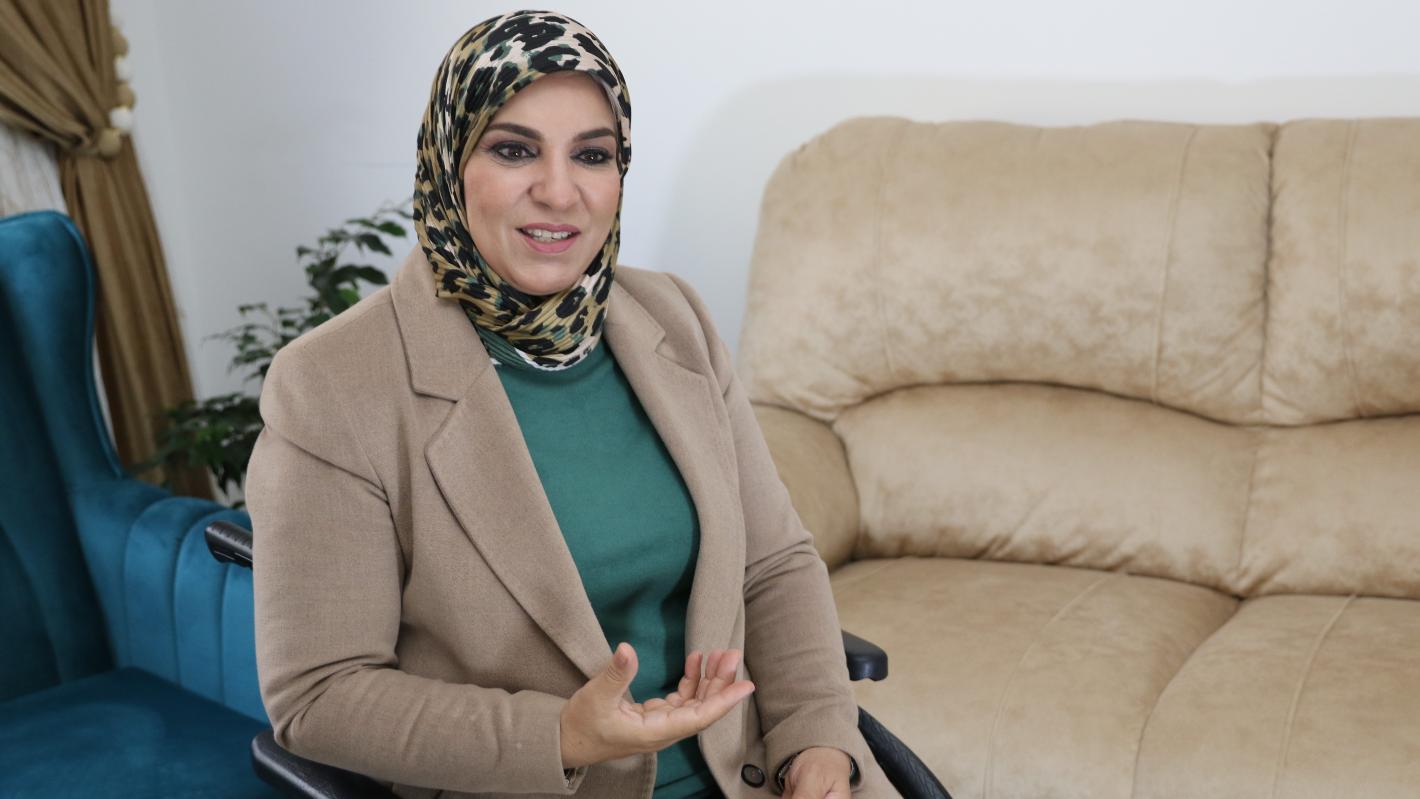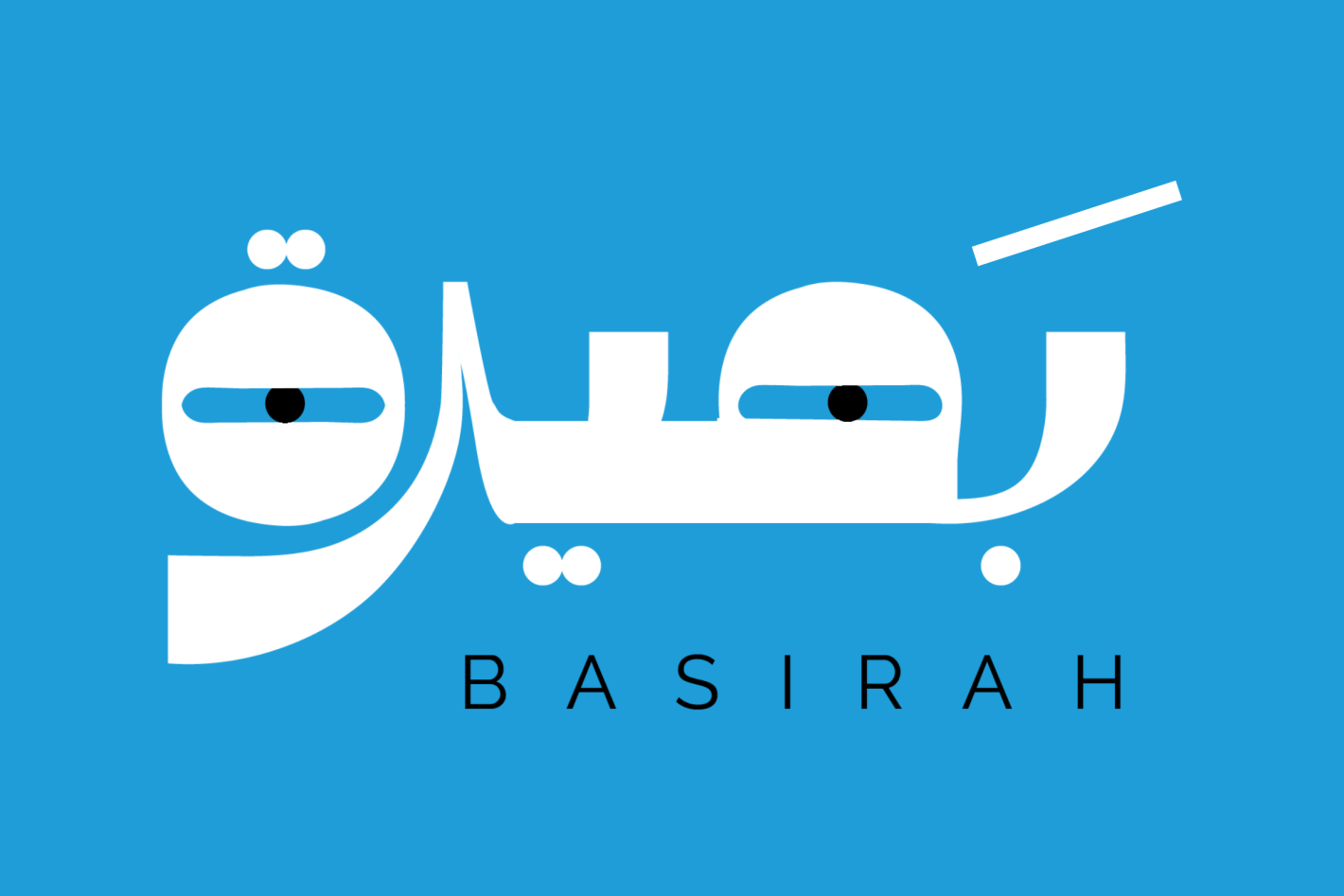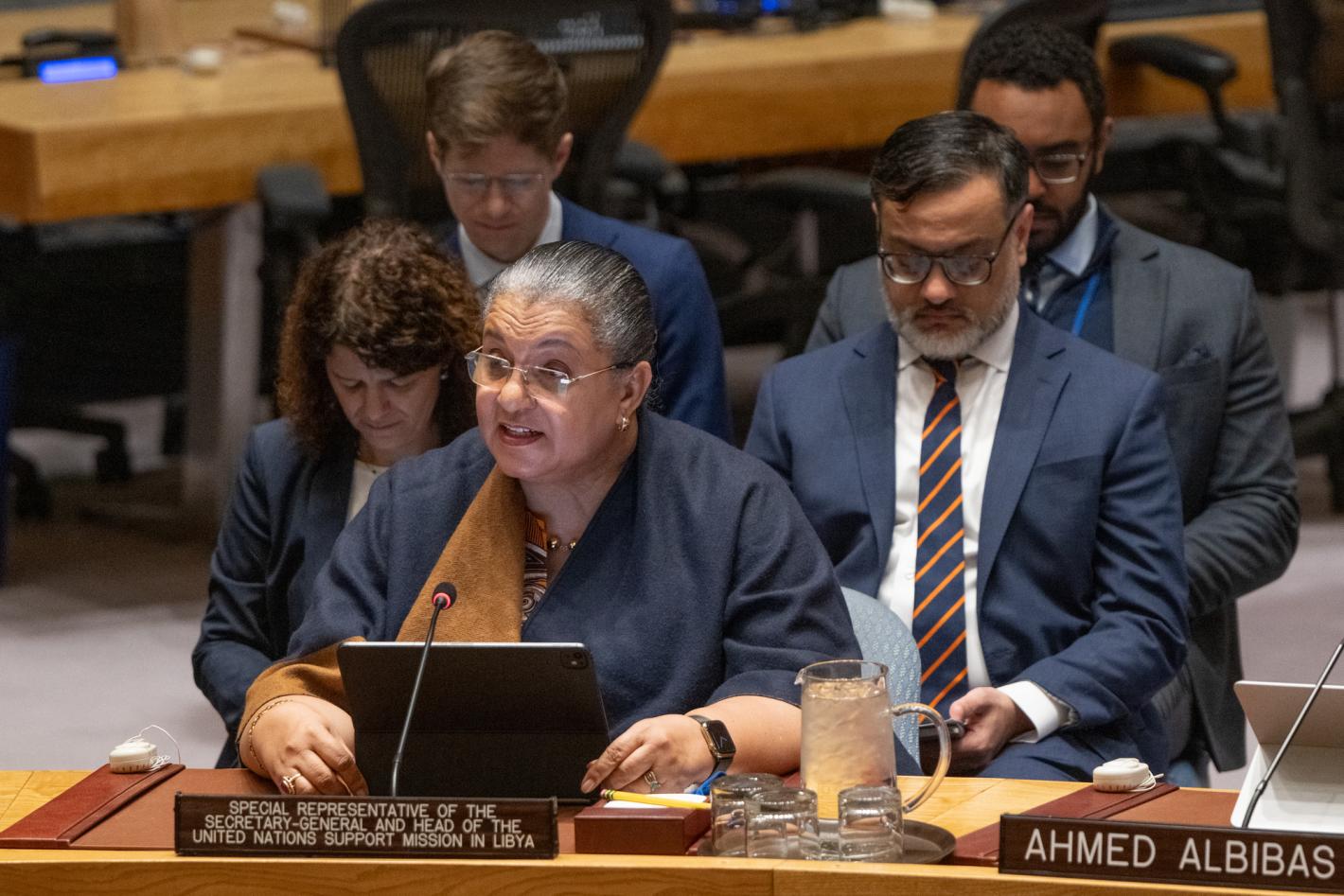TRIPOLI – 3 December 2022 – For disabled people in Libya, going about everyday tasks can be extremely difficult. But according to disability rights campaigner Dr. Laila Badda, for those who are women and disabled, there are twice as many barriers, and they face double the discrimination as they try to actively participate in society.
As a mother of five, and sociology lecturer at the University of Sabratha, Dr. Badda says living a full and equal existence in Libya as a disabled person is nearly impossible.
According to the UN’s Common Country Analysis, 2021, the number of disabled people in Libya is estimated to be between 2.9 per cent to 14.3 per cent of the population, with many life-long disabilities caused by conflict.
Dr. Badda is part of a campaign - Wusul - to improve access in universities for disabled students and is part of a group working to update Libya’s disability laws. At times, she says, her students have had to carry her into the classroom due to the building’s inaccessibility.
“I am experienced enough as a woman to accept help from people, and to be carried,” she says. “But for young people who become disabled this is very hard. They have no easy way of engaging with society and few of them are supported in the education system.”
Her campaign saw the Ministry of Higher Education ask universities to ensure their buildings were accessible for all by 2020. However, little has been done since, and the group continues to push for actual change on the ground by the Government.
This lack of progress impacts Dr. Badda and her students every day. After contracting Guillain-Barre syndrome in 2014, which resulted in the paralysis of her legs, Dr. Badda describes forcing herself to regain control of the top half of her body. “I refused to accept the kind of slow death the doctors were predicting,” she says.
Her struggle to engage in society has seen her battle not only physical barriers, in a healthcare system unable to support her needs, but also societal ones. Her husband’s friends continually encourage him to divorce her and marry another wife because of her disability, believing it is unnatural for him to stay with her.
The challenges are everywhere and start at home, she says, as houses are not adapted for disabled people, leading to isolation. The Government offers a monthly payment of 450 Libyan Dinars to those with disabilities from the Solidarity Fund, but this is not enough money to purchase the equipment that is needed to live with dignity.
“I purchased my own secondhand wheelchair in January, and this cost 6,000 Libyan Dinars (approximately $1,200),” she says, adding she could only do so through a savings group which allowed her to pay for it in installments.
She tried to engage with the Solidarity Fund, as the main government body for those with disabilities, to discuss better support for women. But the Fund’s office was on the top floor of a building without a lift, and she was unable to get in to meet them.
She hopes for a Libya where disabled people are not only supported to live with dignity but are represented and recognized in society and government. We should be deciding on our own rights, rather than having them decided by others, she says, adding that we want to be a useful part of society just like everyone else.
Libya ratified the UN convention on the rights of persons with disabilities in February 2018. This requires all parties to promote, protect, and ensure full enjoyment of human rights by person with disabilities.
The mandate of the United Nations Support Mission in Libya is to advocate for dignity, freedom and justice for all, and the human rights team is working to speak to Libyans across the country to understand the human rights challenges.






